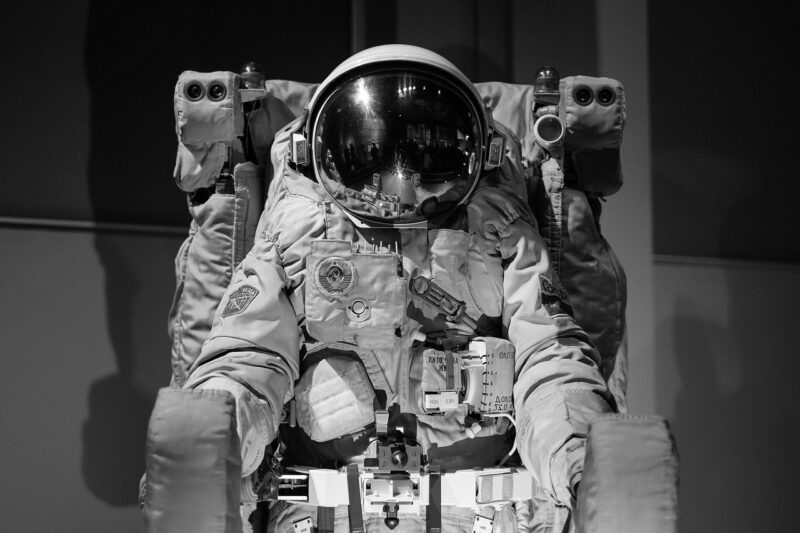The Surprising Psychological Effects of Living in Space
November 16, 2024

Living in space is often romanticized as a thrilling adventure filled with otherworldly sights and experiences. However, the psychological effects of extended space travel have garnered increasing attention from scientists, psychologists, and astronauts alike. As space agencies plan for longer missions, including potential journeys to Mars, understanding how isolation, microgravity, and confinement affect the human mind is crucial.
1. The Isolation Factor
One of the most profound psychological challenges astronauts face is isolation. Space missions can involve spending six months or more in confined environments far from Earth and separated from family and friends. This isolation can lead to feelings of loneliness and anxiety.
Psychological studies conducted on astronauts reveal that extended isolation can result in a range of emotional responses:
- Increased Anxiety: The lack of social interaction and physical distancing from loved ones can contribute significantly to anxiety levels. Astronauts are often trained to handle isolation, but individual responses vary greatly.
- Depression Symptoms: The absence of natural social cues and interaction can lead to depressive thoughts or feelings. Prolonged isolation may exacerbate pre-existing mental health conditions, making it crucial for mental health support during missions.
- Coping Mechanisms: Astronauts develop various coping strategies to manage their emotional well-being. Creating a routine, maintaining contact with loved ones through video calls, and engaging in physical exercise are vital components of these strategies.
Understanding the emotional burdens of isolation is essential for future space missions. Planning for regular psychological support is becoming a priority for space agencies.
2. Effects of Microgravity on Mental State
Microgravity significantly alters human physiology and psychology. The experience of weightlessness can be exhilarating, but it also brings a unique set of psychological challenges:
- Altered Sense of Self: In microgravity, the human body experiences physical changes which can affect self-perception. Astronauts often report feeling disoriented in their physical identity, leading to challenges in body image and spatial awareness.
- Impact on Cognitive Functioning: Research indicates that microgravity can influence cognitive performance. Some astronauts have experienced difficulties with attention, memory, and problem-solving abilities, particularly in the initial phases of adapting to the conditions of space.
- Mood Swings: The unique environment in space can lead to fluctuating moods. Stressors related to workload, isolation, and the physical environment can heighten emotions, increasing irritability and mood disturbances.
Future missions must account for these shifts in mental and cognitive performance, emphasizing ongoing psychological evaluation and support during extended travels.
3. Crew Dynamics: A Double-Edged Sword
The dynamics between crew members play a critical role in psychological health during missions. While a cohesive crew can support each other through the hardships of space travel, conflicts can arise that severely impact mental well-being:
- Team Cohesion: Successful teamwork can be a powerful motivating factor for astronauts. Sharing laughter, challenges, and experiences creates strong bonds that help combat loneliness and anxiety. However, it’s essential that team members maintain respectful communication to mitigate conflicts.
- Conflict Management: Tensions can rise due to cultural differences, interpersonal disputes, or the stresses of isolation. Training astronauts in conflict resolution and providing psychological monitoring can help mitigate these issues.
- Stressful Situations: In emergencies, the psychological strain on crew members can become overwhelming. How individuals cope under stress can determine mission success, making preparation and training essential aspects of astronaut readiness.
Understanding these dynamics is crucial for mission planners, emphasizing the need for effective crew selection and training in teamwork.
4. Coping Strategies for Astronauts
Given the psychological challenges of space, astronauts adopt various coping strategies to maintain their mental health:
- Creating Structure and Routine: Designating specific times for work, exercise, meals, and leisure helps establish a sense of normalcy and predictability amidst the unusual environment of space.
- Regular Communication with Earth: Staying in touch with loved ones and mission control maintains emotional connections, alleviating feelings of isolation and providing support when needed.
- Expressive Outlets: Astronauts are encouraged to engage in creative or leisure activities, such as writing, drawing, or playing musical instruments, to process their experiences and emotions healthily.
These strategies, if implemented effectively, can help astronauts navigate the psychological hurdles of living in space.
5. The Role of Technology in Mental Health Support
The advancement of technology plays a crucial role in supporting astronauts’ mental health. From virtual reality to telemedicine, the potential applications are vast:
- Teletherapy: Providing access to mental health professionals via telecommunication allows astronauts to seek help without the need for physical presence. Regular psychological check-ups can become a standard practice during missions.
- Virtual Reality: VR simulations can alleviate stress by offering astronauts the opportunity to engage with immersive environments reminiscent of Earth. Such experiences can serve as effective temporary escapes from the confines of their habitat.
- Digital Platforms for Community Building: Online forums or apps can foster interaction, even among astronauts who might be on different missions. Peer support can be offered for those in isolated situations.
The integration of technology as a supportive tool will likely shape the future of mental health in space exploration.
Conclusion
As humanity strives toward longer space missions and potential colonization, understanding the psychological effects of living in space remains pivotal. By recognizing the challenges of isolation, microgravity effects, crew dynamics, coping strategies, and the support technology can provide, we can better prepare astronauts for the unique challenges they will face.
Space travel will continue to evolve, and ensuring the mental well-being of astronauts is critical for success. As we look to the stars, let us not forget the intricate workings of the human mind and the importance of psychological health in our quest for exploration.






